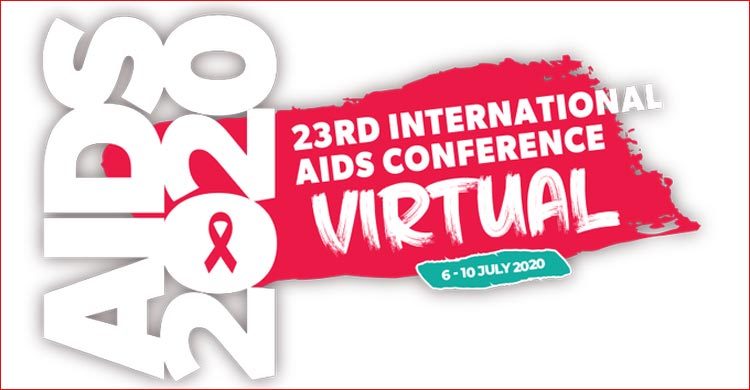23rd Virtual International AIDS Conference 2020 begins

The first-ever virtual edition of the world’s largest conference on HIV began on Monday with a focus on the links between HIV and the COVID-19 pandemic and recognition of global debates around racism.
Delegates from 175 countries are attending the conference, originally set to take place in Oakland and San Francisco, US.
“These are remarkable times - and defining times - for the global HIV movement and for the world,” International AIDS Society President and AIDS 2020: Virtual International Scientific Chair Anton Pozniak said.
“Every conversation we have now sits at the confluence of the COVID-19 pandemic and a new global reckoning with systemic racism.”
The opening press conference featured UNAIDS Executive Director Winnie Byanyima, WHO Director-General Dr Tedros Adhanom Ghebreyesus and evidence from two studies examining the link between the HIV and COVID-19 pandemics.
Byanyima presented findings from the UNAIDS 2020 Global AIDS Update, launched at the opening. The report, entitled Seizing the Moment: Tackling entrenched inequalities to end epidemics, includes a special chapter outlining the potential impacts that the COVID-19 pandemic could have in low-and middle-income countries on supplies of the generic antiretroviral medicines used to treat HIV.
“Even before the onset of COVID-19, the new UNAIDS Global Report shows that the world was not on track to reach its goal of ending AIDS as a public health threat by 2030,” Byanyima said.
“We cannot drop the ball on HIV. We must double down and increase our efforts to hold governments and policy makers to account. Epidemics run along the fault lines of inequalities and we can and must close the gaps.”
Dr Tedros shared findings of a new WHO survey showing significant disruptions in access to HIV treatment because of the COVID-19 pandemic.
“The findings of this survey are deeply concerning,” Dr Tedros said.
“Countries and their development partners must do all they can to ensure that people who need HIV treatment continue to access it. We cannot let the COVID-19 pandemic undo the hard-won gains in the global response to this disease.”
Authors of two studies being released at AIDS 2020: Virtual also shared findings related to the intersection of COVID-19 and HIV.
Survey of LGBTI+ people shows increased socioeconomic vulnerability due to COVID-19
A survey of 13,562 people in 138 countries conducted from mid-April until mid-May showed that COVID-19 is having a devastating impact on the LGBTI+ community worldwide.
Nearly half the survey participants faced economic difficulty, with many unable to meet their basic needs, skipping meals or reducing meal sizes. Further, nearly half of those who were working expected to lose their employment in the wake of the pandemic, and 13% had already lost their jobs.
Of concern, 26% of participants living with HIV reported that they had experienced interrupted or restricted access to refills of antiretroviral treatment.



